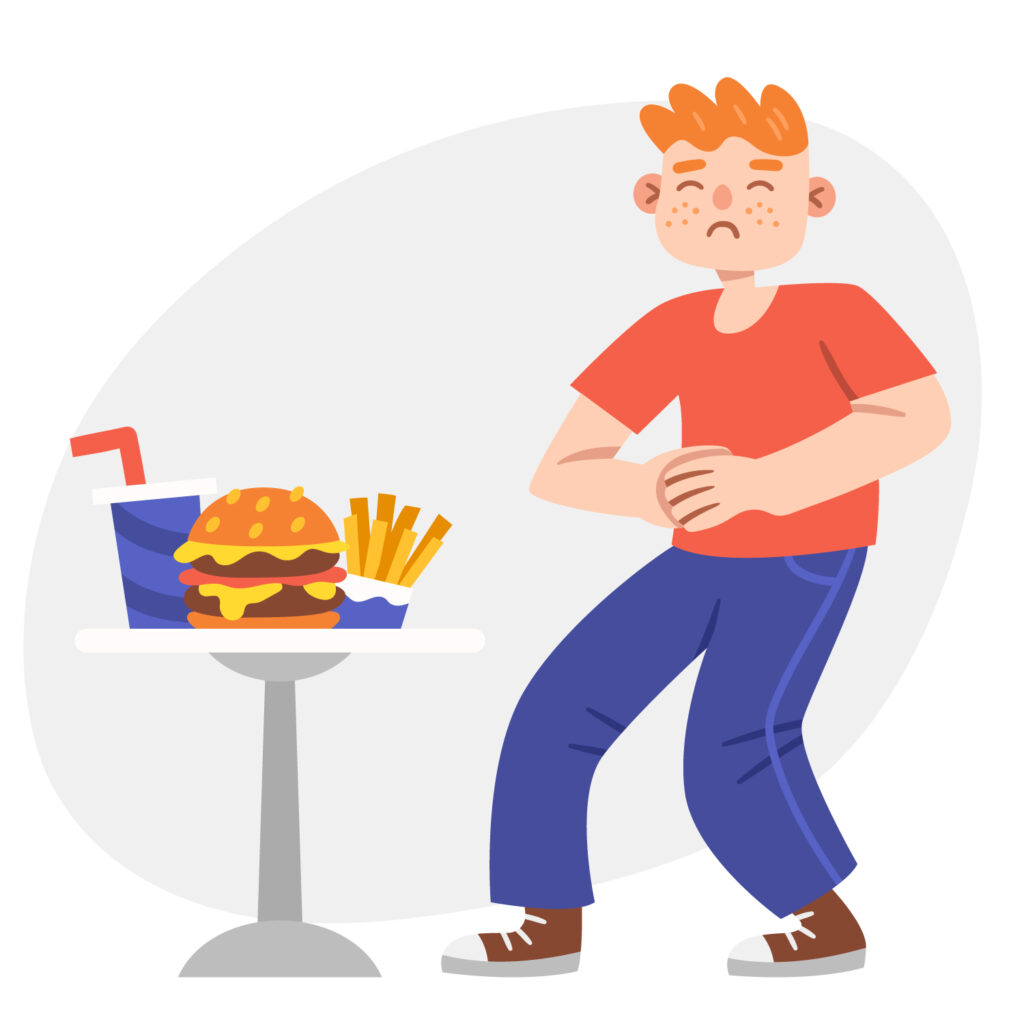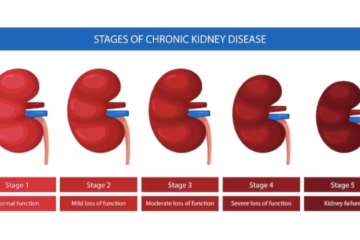
A healthy bladder is essential for maintaining optimal urinary function and overall well-being. However, certain foods have the potential to irritate the bladder and cause discomfort. If you often experience symptoms such as frequent urination, urgency, or pain, it may be worth examining your diet for potential culprits.
In this blog post, we will explore five common foods that could potentially irritate your bladder. We will delve into the reasons behind their irritative properties and provide alternatives to help you make informed dietary choices. By understanding these triggers, you can take proactive steps to minimise bladder irritation and promote better urinary health.
Whether you’re someone who already experiences bladder sensitivity or simply wants to optimize your urinary function, this guide will provide valuable insights into the impact of certain foods on your bladder health. Let’s explore the potential culprits and discover bladder-friendly alternatives to incorporate into your diet.
Citrus Fruits and Juices: Citrus fruits, such as oranges, grapefruits, lemons, and limes, are delicious and packed with essential vitamins and antioxidants. However, their high acidity can irritate the bladder lining, leading to discomfort and increased urinary frequency. The acidic nature of citrus fruits can also exacerbate symptoms for those with conditions like interstitial cystitis (IC) or bladder sensitivity.
Alternative bladder-friendly fruits include bananas, pears, apples, and melons, which provide similar nutritional benefits without the high acid content. These fruits can still offer a refreshing and nutritious addition to your diet without causing bladder irritation.
Spicy Foods: Spicy foods can tantalize our taste buds and add a flavorful kick to our meals. However, for individuals with sensitive bladders, the compounds responsible for the heat in spicy foods, such as capsaicin, can irritate the bladder and worsen symptoms. This can include a heightened sense of urgency, increased frequency, and even discomfort or pain.
To add flavour without irritating your bladder, consider using milder alternatives like herbs and mild spices such as basil, oregano, or thyme. These can still enhance the taste of your meals while minimizing the potential for bladder irritation.
Caffeine and Caffeinated Beverages: Caffeine, a natural stimulant found in coffee, tea, energy drinks, and certain sodas, acts as a diuretic, increasing urine production and potentially irritating the bladder. It can lead to increased urinary frequency and urgency, and in some cases, worsen bladder control issues.
Reducing or eliminating caffeine intake can significantly alleviate bladder irritation. Opt for caffeine-free or herbal teas, infused water, or decaffeinated coffee as alternatives. Remember to stay hydrated with water throughout the day, as proper hydration is crucial for maintaining a healthy bladder.
Artificial Sweeteners: Artificial sweeteners, commonly found in sugar-free or diet products, can be problematic for individuals with sensitive bladders. Substances like saccharin, aspartame, and sucralose can irritate the bladder and increase urinary frequency.
Instead of artificial sweeteners, opt for natural sweeteners like honey, maple syrup, or stevia. These alternatives can provide a touch of sweetness without triggering bladder irritation, allowing you to enjoy a satisfying taste without compromising your urinary health.
Alcohol: Alcohol is known to have diuretic properties, which can increase urine production and potentially irritate the bladder. Additionally, certain alcoholic beverages like beer and wine contain substances like histamines and tannins that can further irritate the bladder and worsen symptoms.
If you’re looking for bladder-friendly drink options, consider mocktails or non-alcoholic beverages. Herbal teas, infused water, or naturally flavoured sparkling water can be refreshing choices that won’t irritate your bladder.
Conclusion
While these foods may be enjoyable and flavorful, they can trigger bladder irritation and lead to uncomfortable symptoms. However, it’s important to note that bladder sensitivity varies from person to person. What may irritate one person’s bladder may not have the same effect on another. It’s essential to pay attention to your body’s signals and identify your personal triggers through observation and experimentation.
Fortunately, there are bladder-friendly alternatives available for each of these food categories. By incorporating low-acid fruits, milder spices, caffeine-free beverages, natural sweeteners, and non-alcoholic options into your diet, you can still enjoy delicious meals and beverages without exacerbating bladder symptoms.
Remember, a balanced diet, adequate hydration, and overall healthy lifestyle habits are crucial for maintaining optimal bladder health. If you experience persistent or severe bladder irritation symptoms, it’s advisable to consult a healthcare professional for further evaluation and guidance.
By making conscious choices and understanding the potential impact of certain foods on your bladder, you can take control of your urinary health and enhance your overall quality of life. Your bladder will thank you for the care and attention you give it, and you can enjoy a more comfortable and enjoyable day-to-day experience.
So, next time you plan your meals or reach for a beverage, consider the potential impact on your bladder. With a bit of knowledge and adjustment, you can create a bladder-friendly diet that supports your well-being and promotes optimal urinary health.
Dr. Sumit Sharma is an experienced urologist, andrologist, and kidney transplant surgeon with over 20 years of clinical experience. He is the founder of the Department of Urology at multiple hospitals in Gurgaon and has established successful kidney transplant programs across the city.
Here are some frequently asked questions about 5 Foods that Could Be Irritating Your Bladder:
Q. Are there any strategies to minimize bladder irritation caused by these foods?
Yes, there are strategies you can employ to minimize bladder irritation caused by the foods discussed in this blog. Here are some tips to help you reduce bladder irritation:
- Keep a food diary: Start by keeping a food diary to track your dietary intake and any corresponding bladder symptoms. This can help you identify specific foods that trigger irritation and enable you to make targeted adjustments to your diet.
- Practice moderation: While completely eliminating certain foods may not be necessary for everyone, practising moderation can be helpful. Instead of completely cutting out foods that may irritate your bladder, try consuming them in smaller portions or less frequently.
- Experiment with alternative options: Explore bladder-friendly alternatives to the foods that irritate your bladder. For example, if citrus fruits irritate your bladder, try incorporating low-acid fruits like bananas, pears, apples, and melons into your diet. Similarly, if you enjoy spicy foods, experiment with milder spices or herbs to add flavour without triggering irritation.
- Stay hydrated: Maintaining proper hydration is essential for overall bladder health. Drinking an adequate amount of water throughout the day helps flush out irritants from the bladder and dilutes the urine, reducing potential irritation. Aim for at least 8 cups (64 ounces) of water per day, or as recommended by your healthcare provider.
- Practice mindful eating: Pay attention to how your body responds to different foods. Eat slowly, chew your food thoroughly, and take note of any bladder symptoms that may arise. This can help you identify trigger foods and make necessary adjustments to your diet.
- Seek professional guidance: If you consistently experience severe bladder irritation symptoms or have underlying medical conditions, it’s advisable to consult a healthcare professional. They can provide personalized guidance, recommend dietary modifications, and suggest appropriate treatments or interventions based on your specific needs.
Remember, everyone’s bladder sensitivity is unique, so it’s important to listen to your body and adjust your diet accordingly. By implementing these strategies and adopting a proactive approach to managing your bladder health, you can minimize irritation and promote overall well-being.
Q. Who is the best Urologist in Gurgaon?
Dr. Sumit Sharma is an experienced urologist, andrologist, and kidney transplant surgeon with over 20 years of clinical experience. He is the founder of the Department of Urology at multiple hospitals in Gurgaon and has established successful kidney transplant programs across the city.
Q. How long does it take for bladder irritation symptoms to subside after eliminating trigger foods?
The duration for bladder irritation symptoms to subside after eliminating trigger foods can vary from person to person. It depends on several factors, including the individual’s sensitivity, the specific trigger food, and the severity of the symptoms.
In some cases, individuals may experience relief from bladder irritation symptoms relatively quickly, within a few days or weeks of eliminating trigger foods from their diet. This can especially be the case for individuals who have identified specific trigger foods through a food diary or other methods.
However, for others, it may take longer for symptoms to subside. The healing process of the bladder lining and the reduction of inflammation can vary in duration. It is essential to be patient and consistent with dietary modifications to allow the bladder to heal and symptoms to improve over time.
It’s worth noting that eliminating trigger foods may not completely resolve all bladder irritation symptoms, especially if there are other underlying factors contributing to the condition, such as urinary tract infections or bladder disorders. In such cases, it’s important to work with a healthcare professional who can provide appropriate guidance and treatment options.



